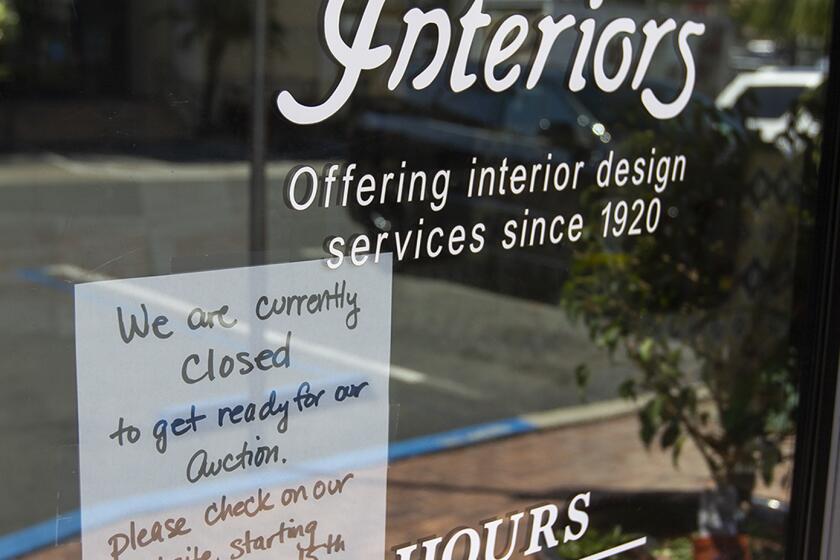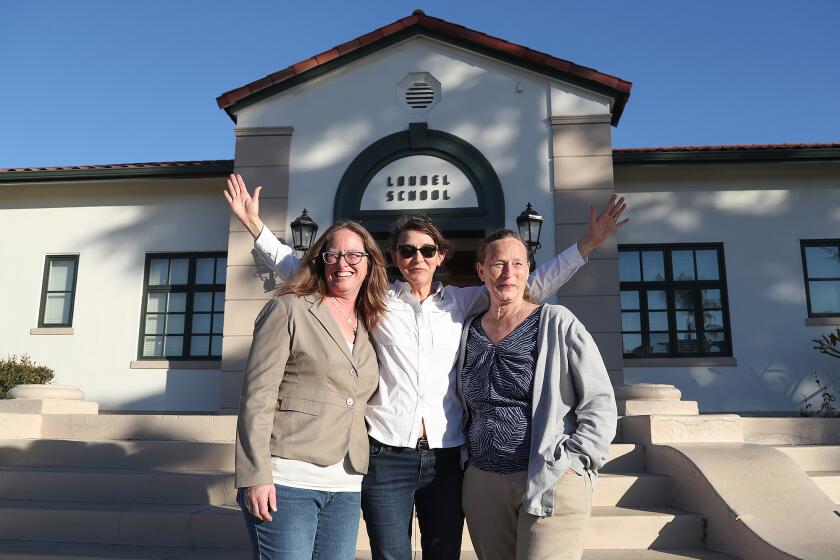All fingers point to a second Raising Cane’s in Costa Mesa
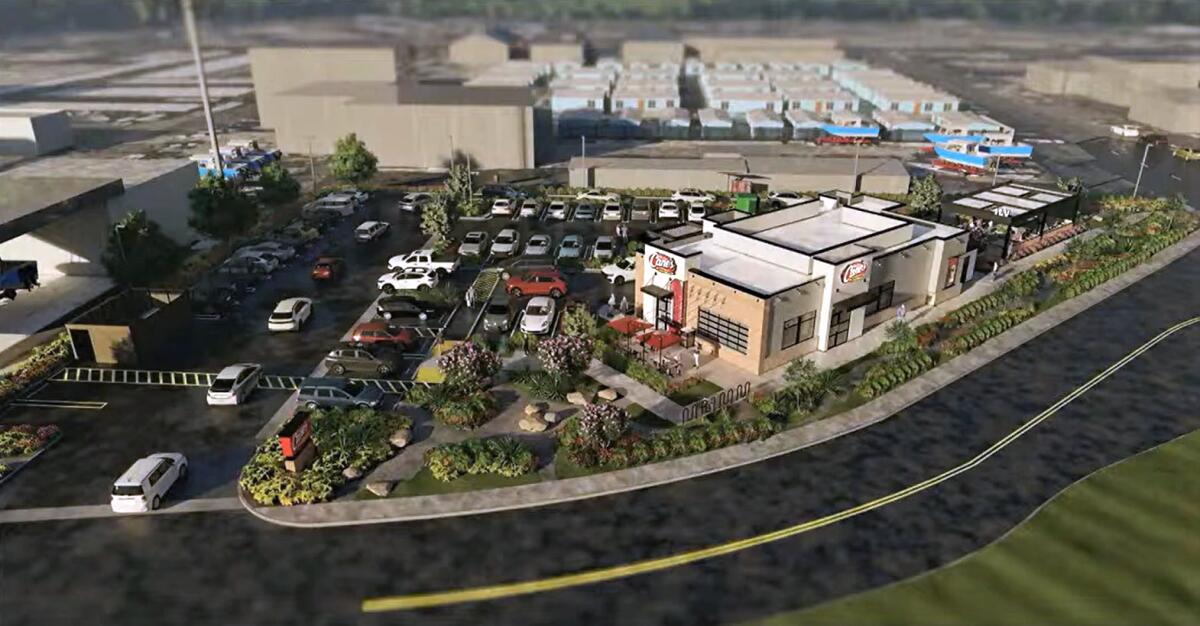
Eight years ago, Costa Mesa earned the fast-food distinction of being home to California’s first Raising Cane’s drive-through chicken chain restaurant on Harbor Boulevard.
Now, with lessons learned and 88 more openings statewide under their belts, owners of the popular establishment are looking to take another bite at the proverbial chicken finger, proposing a second in-town location near the functionally wonky juncture of Old Newport Boulevard and East 16th Street.
Applicants presented their case Monday before the Costa Mesa Planning Commission, where they sought a minor conditional use permit to operate a drive-through and entitlements allowing for a reduction in required parking, narrower driving lanes and a 4-foot encroachment into a 20-foot setback at 1595 Old Newport Blvd.
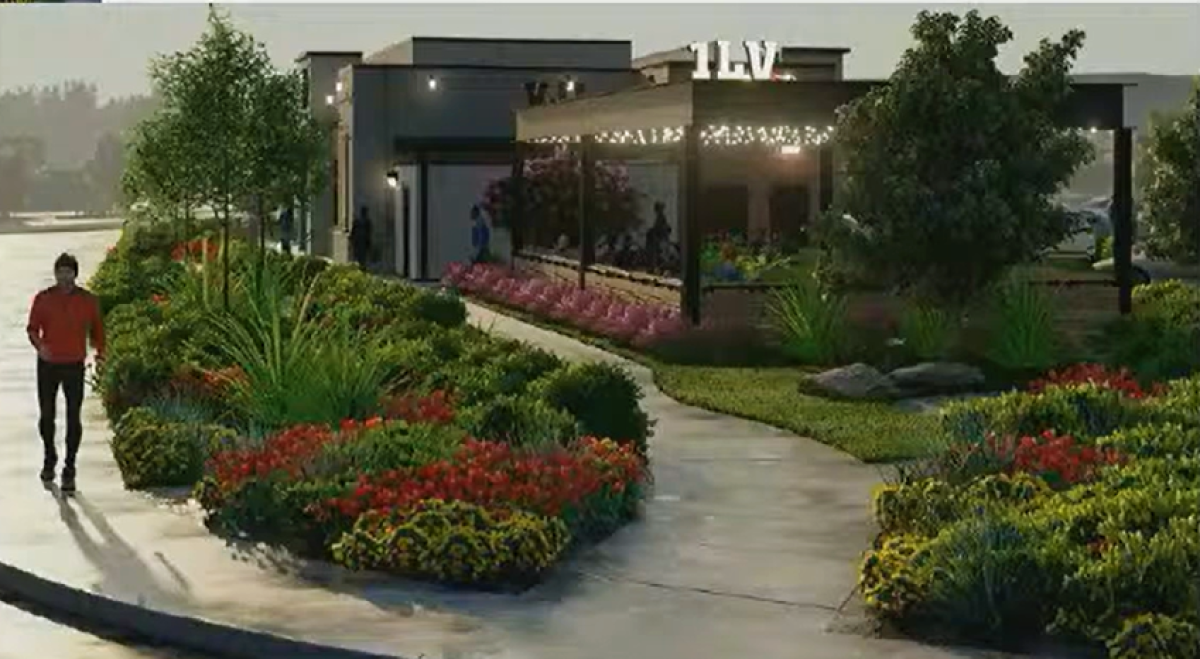
In a 4-2 vote, commissioners ultimately approved plans for the roughly 1-acre lot in the former site of Von Hemert Interiors, which shuttered in 2020 after a century of business.
The decision effectively greenlights a 2,913-square-foot restaurant, large covered outdoor patio and a parking lot that can accommodate 34 vehicles and a split-lane drive-through configuration that promises to keep cars from spilling onto busy surface streets.
“We’ve been working on this project in earnest for about three years,” Jay Riggins, a consultant for Raising Cane’s told commissioners Monday, explaining how plans initially submitted in February 2022 were completely reimagined at the behest of city planners, who urged a more pedestrian friendly site.
Placing a 1,303-square-foot patio at the front of the property and reducing ingress and egress points from three to just one took months to accomplish, Riggins added.
“The added patio … is that really strong connection to the street,” he said. “It’s an inviting opportunity for pedestrians and motorists to look at something that might not otherwise be viewed as a destination for outdoor enjoyment.”
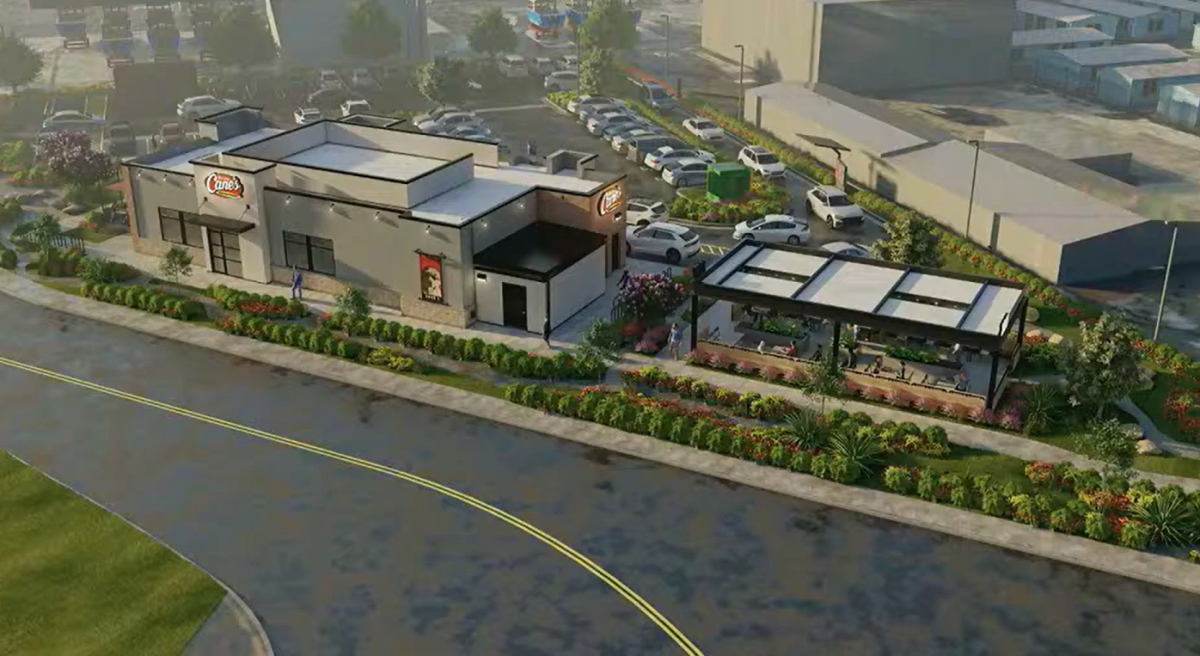
At the heart of an hours-long discussion were potential noise, traffic and parking effects on those who live and work, including adjacent business owners and the residents of Sea Breeze Villas, a 62-unit mobile home park situated about 90 feet westward.
Despite its proximity to those residences — which, according to city law, would limit business operation hours to go no later than 11 p.m. — Raising Cane’s would operate from 9 to 2 a.m. Sunday through Wednesday and from 9 to 3:30 a.m. Thursday through Saturday.
No exception is required, however, because Sea Breeze Villas, built in 1992 on a commercially zoned plot, is a nonconforming use and is not technically zoned for residential use.
The company opened in 1920 with Anna von Hemert. It was called the Chintz Shop then and sold fabric off the bolt and provided services such as drapery, reupholstery and interior design.
Steve Schwimer, who spoke Monday on behalf of its 100-plus residents, urged the commission to deny the project as a “disruptive land use.”
“Although grandfathered in commercial zoning, it has always been a residential use property, and its residents should be availed of all the protections of the city’s general plan,” he said of the mobile home park. “This development [would bring] us disruptive noises of vehicle traffic, loud mufflers, brakes, loud music, barking, maintenance and the potential disturbances to our community for up to 22½ a day.”
Commissioners hashed out whether the popular fast-food chain, which has attracted long lines of vehicles to the first Harbor Boulevard site, was a good and compatible use for the area.
Concerned residents sued the chicken chain out of concern for children’s safety.
Though it’s currently zoned for commercial uses the parcel sits within the city’s newly formed Measure K overlay zone, an arrangement of lots where higher density residential developments are being encouraged to help alleviate a statewide housing crisis.
For that reason, some questioned whether a Raising Cane’s with late-night hours might potentially conflict with future housing plans proposed in proximity to the chain.
Commissioners consequently tossed around the idea of requiring an 11 p.m. closure but ultimately decided to approve the plan with one modification, shrinking the 36-foot driveway down to the city’s maximum 25-foot width allowance.
To ensure the opening and operation of Raising Cane’s is problem free, officials required the project’s applicants to return to the commission within one full year of opening to determine whether further adjustments need to be made.
“I do see the benefit in revitalizing an area that maybe for some years has been sitting vacant and not really contributing to the character of the community,” said Commissioner Jimmy Vivar. “I believe it is worth approving, and I’m confident the applicant will work with city staff regarding any future problems that may happen.”
Chair Adam Ereth and Commissioner Johnny Rojas opposed the project, expressing their concerns for potential safety and traffic impacts it could bring, although it passed the muster of a traffic analysis conducted in the light traffic month of February. Commissioner Angely Andrade Vallarta was absent Monday.
All the latest on Orange County from Orange County.
Get our free TimesOC newsletter.
You may occasionally receive promotional content from the Daily Pilot.
